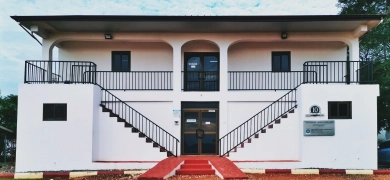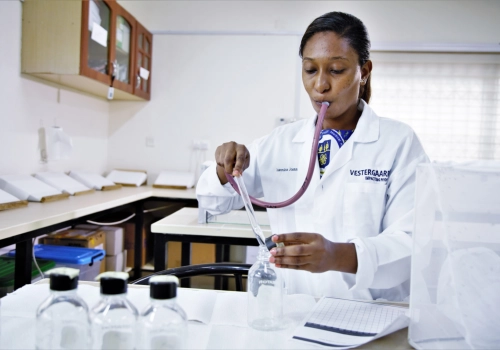Vestergaard–Noguchi Vector Labs (VNVL)
Accelerating product innovation, with quality and performance monitoring

13 +
years of partnership
between Vestergaard and Noguchi Memorial Institute for Medical Research (NMIMR)
20 +
scientific experts
supporting product innovation and quality assurance
800000 +
mosquitoes reared annually
with specific characteristics for accurate scientific testing and evaluation
2500 +
samples tested every year
to evaluate how well our vector control products work over their lifespan
VNVL is a long-standing public–private partnership
Our relationship with the Noguchi Memorial Institute for Medical Research (NMIMR) dates back to 2011, when VNVL was established in Accra, Ghana. Today, VNVL operates a dedicated facility that serves as a regional hub for evaluating the performance of our long-lasting insecticide-treated nets.
The fight against malaria isn’t just about innovation—it’s about ensuring that solutions work where they’re needed most. By building testing capacity where malaria is most prevalent, VNVL helps ensure that malaria interventions are locally informed, independently validated, and relevant to real-world conditions.
